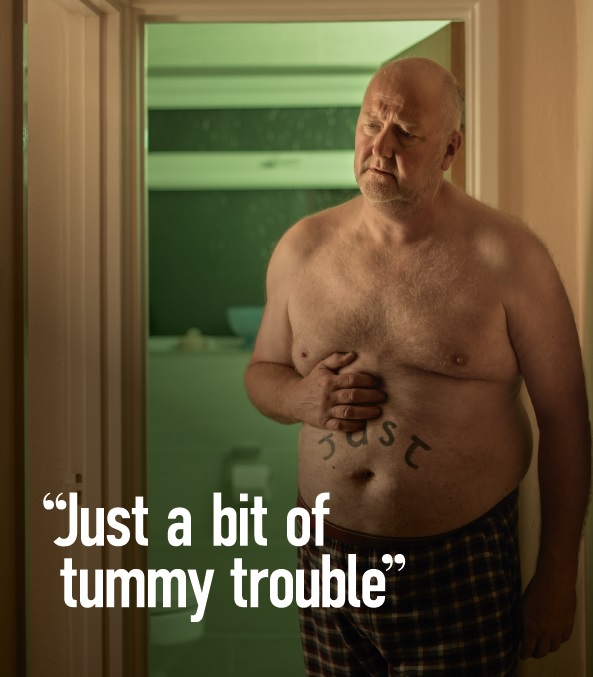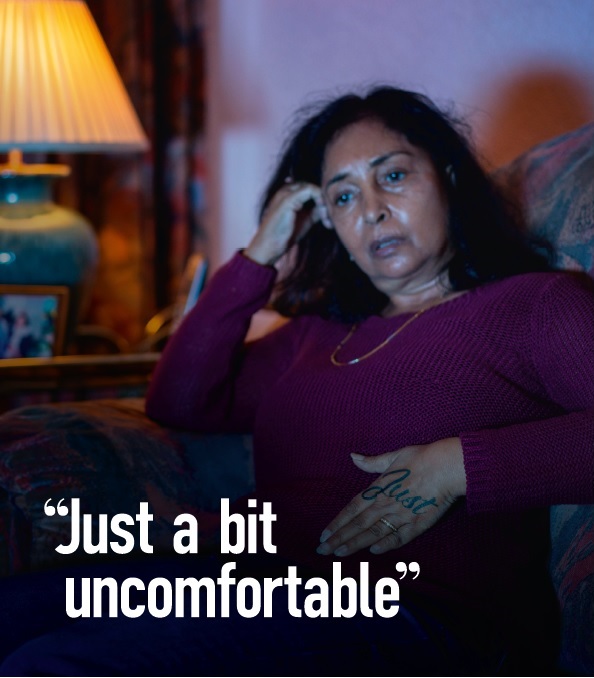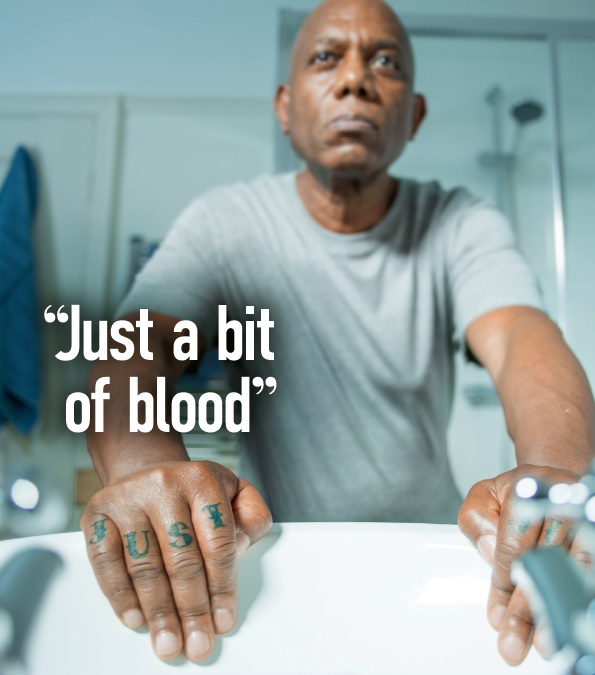NHS England’s ‘Help Us, Help You’ campaign aims to ensure that people know how and when to access NHS services and reassure that the NHS wants to see you.
This campaign raises awareness of abdominal and urological symptoms that could be a sign of cancer. This should encourage anyone with these symptoms to contact your GP practice and that the NHS is here and wants to see you. The campaign focuses on the symptoms of diarrhoea or discomfort in the tummy area for three weeks or more, or seeing blood in your pee – even just once.
Campaign activity targets men and women aged 50 and over, as older people are most at risk of cancer, particularly those from lower socio-economic groups and ethnic minority groups who are often more reluctant to visit their GP or more likely to ignore symptoms. Activity will also target friends and family members to ensure they are clear on the symptoms and can encourage loved ones to contact their GP practice.
If you’ve had tummy trouble such as discomfort or diarrhoea for three weeks or more, or seen blood in your pee – even just once, it could be a sign of cancer. It’s probably nothing serious, but finding cancer early makes it more treatable and can save lives, contact your GP practice, your NHS wants to see you.
- If you’ve had tummy troubles for three weeks or more, tell your GP – we want to see you and you won’t be wasting our time
- Persistent tummy troubles that can be possible signs of cancer include:
- Diarrhoea
- Being bloated most days
- Discomfort in the tummy area or constipation
- Nausea/feeling sick
- Blood in your poo
- If you have any of these for three weeks or more, tell your GP. You should also speak to your GP if you notice any other unusual changes such as a lump in the tummy area, post-menopausal bleeding, abnormal vaginal bleeding, or unexplained weight loss, as these can also be signs of cancer.
- Blood in your pee – even just once, can be a sign of cancer and you need to tell your GP. Also, let them know if you notice changes like sudden urges to pee or needing to go more often
The latest data shows that:
- Over a quarter of the public surveyed were unaware of some of the most common symptoms of urological and abdominal cancers, including:
- Needing to pee urgently (30% unaware)
- Feeling bloated for three weeks or more (28% unaware)
- Diarrhoea for three weeks or more (25% unaware)
- Over a third of the public surveyed did not identify blood in your pee or blood in your poo as typical symptoms of bladder and bowel cancer.
- The most recognisable symptom of urological and abdominal cancers for the public was discomfort in the tummy area (81%)
- Early diagnosis and treatment of cancer can save lives.
- The number of people being sent for urgent cancer checks by their GP has been at record levels since March 2021. We need people to continue coming forward so that we can keep making progress on diagnosing more cancers earlier.
- Data suggests that we are now diagnosing a higher proportion of cancers at an early stage now than before the pandemic, we need people to continue coming forward so that we can continue to save lives.
Visit nhs.uk/cancersymptoms for more information.



